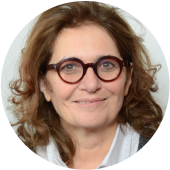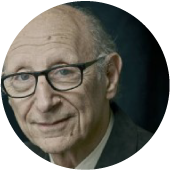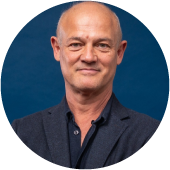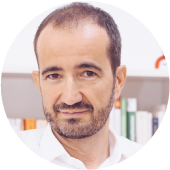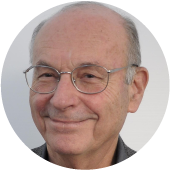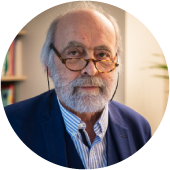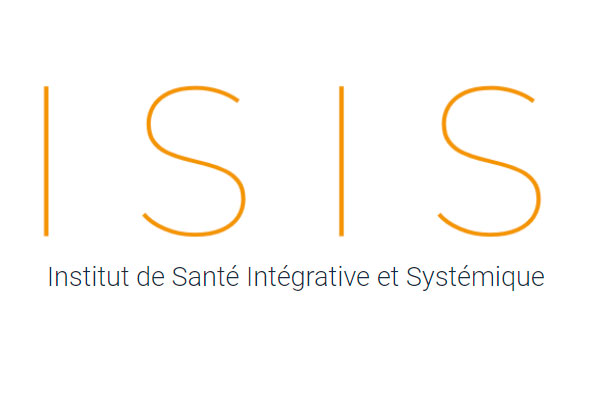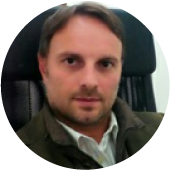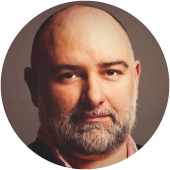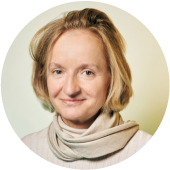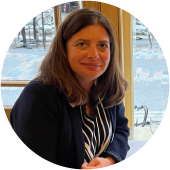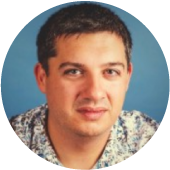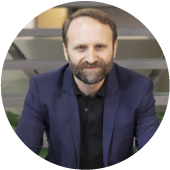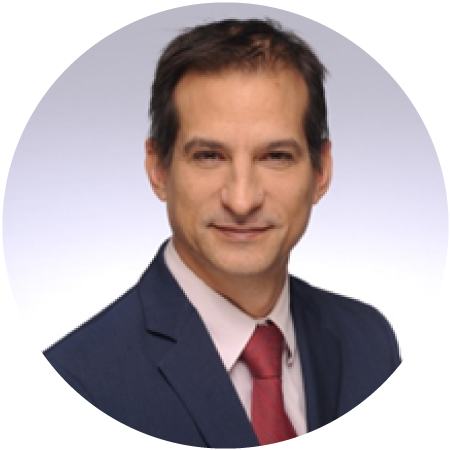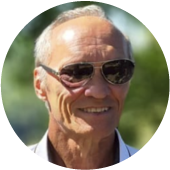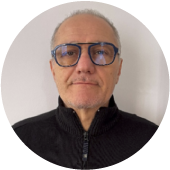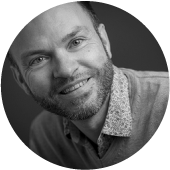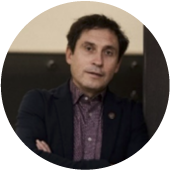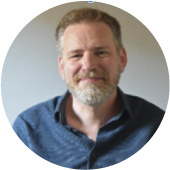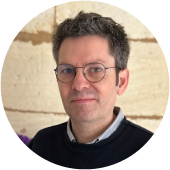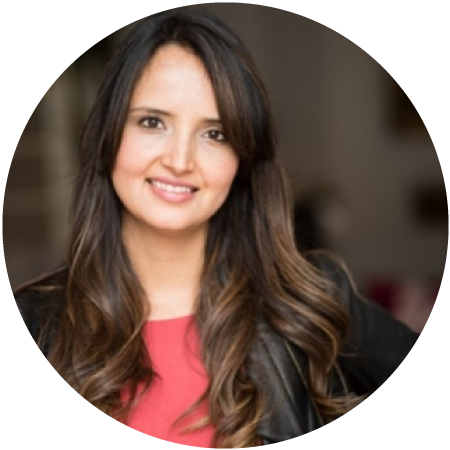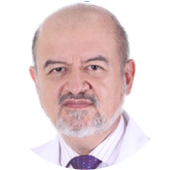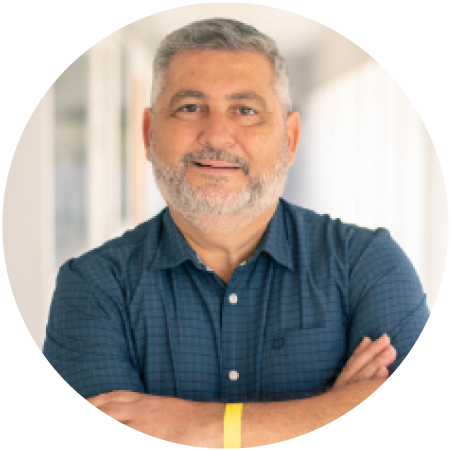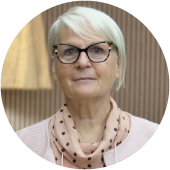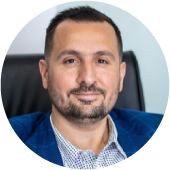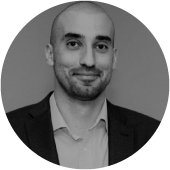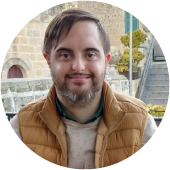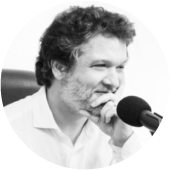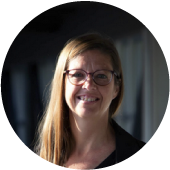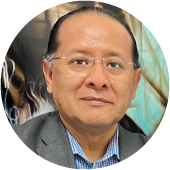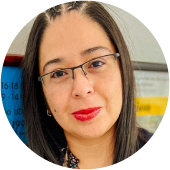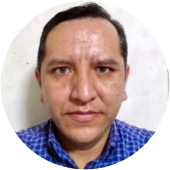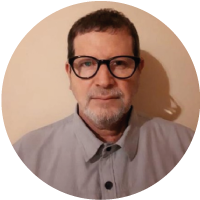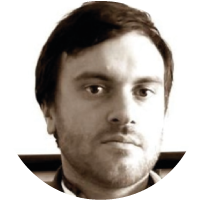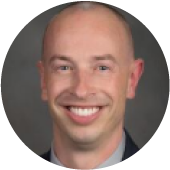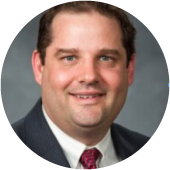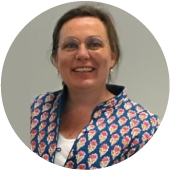
EVÉNEMENT MONDIAL - 2ème édition - 25 & 26 Mars 2025
Congrès annuel
inter - universités & écoles
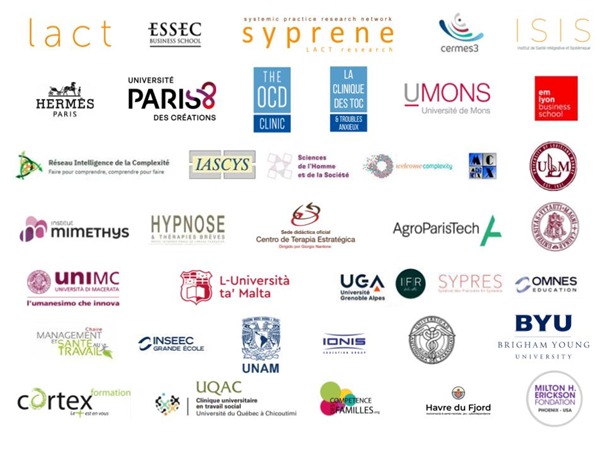
"Sortir d’un mode de pensée causal pour agir dans le monde autrement"
Le congrès du 23 mars 2023 a été un grand succès, réunissant plus de 1 000 personnes, avec 10 pays participants, 40 Universités/Ecoles partenaires et une centaine d’intervenants.
Albert Einstein disait qu’« on ne résout pas un problème avec les modes de pensée qui l’ont engendré. ». Aujourd’hui, peu s’interrogent sur nos modes de pensée, leurs fonctionnements et leurs conséquences sur les hommes et sur la société.
Alors même que nos sociétés semblent incapables de relever les défis collectifs du XXIème siècle, qu’il s’agisse de défis politiques, écologiques, migratoires, des problématiques en entreprise ou de défis individuels avec la multiplication sans précédent des cas de dépression, burnout, harcèlements, etc. La pensée contemporaine semble s’être cristallisée dans une rigidité causale, source d’opposition et de blocages à l’origine d’un monde, où bien souvent, on est à la recherche de la cause et du coupable au lieu d’appréhender les processus de fonctionnement et de maintien des problèmes. On voit pourtant combien cette approche binaire limite les champs de vision et d’action, tant au niveau individuel que collectif, combien elle fige le monde dans une représentation faussée et figée transformant le monde en un château de cartes d’images d’Epinal.
Les 25 & 26 mars 2025, chercheurs, universitaires, philosophes, psychiatres, sociologues, chefs d’entreprise, personnalités politiques du monde entier, se réunissent lors d’un congrès international pour réfléchir à une pensée systémique avec une vision biopsychosociale sur les activités sociales humaines : santé mentale, couple, famille, éducation, justice, entreprise, politique, etc. Comment l’approche systémique permet-elle d’aborder les processus qui régissent l’individu dans son rapport à lui-même, aux autres et au monde ? Comment permet-elle de sortir d’un mode de pensée causal ? Comment enseigner ce mode de pensée processuelle et complexe ? Comment développer les métiers des systémiciens, autant de nouveaux métiers d’avenir, hautement qualifiés et essentiels à une meilleure écologie relationnelle dans la société ?
Le programme
Journée du 25 Mars 2025 de 9h à 17h30
Ouverture
09h00 - 09h30
![]()
Sortir d’une pensée linéaire pour agir sur le monde autrement
Pourquoi face à une même situation, certains trouvent des solutions tandis que d'autres développent des symptômes ? Cette conférence explore le passage d’une causalité linéaire à une pensée systémique, appliquée à la clinique, à l’entreprise et à l’éducation. Grégoire Vitry et Claude de Scorraille aborderont les liens entre intelligence artificielle, leadership et transformations sociétales, tout en illustrant leurs propos par des études de cas concrets. Une immersion dans une approche où changer la perception permet de transformer les interactions et les systèmes humains.
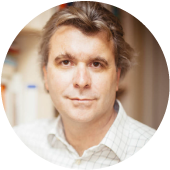 Grégoire VITRY | Docteur-chercheur en psychologie, diplômé de l'école de Palo Alto, il travaille depuis plusieurs années avec Giorgio Nardone, Nathalie Duriez, Michael Hoyt, Teresa Garcia, Jean-Jacques Wittezaele, Wendel Ray et le MRI afin de promouvoir la recherche et la formation en approche systémique. Il développe depuis 2016 SYPRENE un réseau PRN (Thurin et al., 2012) en approche systémique permettant notamment d'améliorer sa pratique en étroite collaboration avec le monde Universitaire. Il est également en charge de l'école internationale LACT et du congrès International Webinar Brief Therapy. Co-auteur "Quand le travail fait mal", "Stratégies de changement, 16 prescriptions thérapeutiques". |
| Claude de SCORRAILLE | Psychologue, psychothérapeute et co-fondatrice de LACT dont elle est la présidente. Elle dirige la Clinique des TOC et troubles anxieux en partenariat avec le centre européen the OCD Clinic. Elle enseigne et forme par le web à la clinique de la relation au sein de l’école internationale LACT. Au sein du CSAPA de Montreuil, elle a une consultation spécialisée dans les troubles de l’addiction. Elle est co-auteure de plusieurs ouvrages et donne régulièrement des conférences. |
09h30 - 10h30
![]()
|
Robert NEUBURGER | Robert Neuburger est psychiatre, thérapeute de couple et de famille. Il anime des formations et des supervisions dans différents cadres. Il est l’auteur de nombreux ouvrages traduits en plusieurs langues, dont « L’autre demande », « Le mythe familial », « Les rituels familiaux », « Les familles qui ont la tête à l’envers, revivre après un traumatisme familial », « Exister, le plus intime et fragile des sentiments et, récemment, « Écrire sa mère, à la recherche de l’amour perdu »… Humanisme et constructivisme Toute approche psychothérapique contient une vision de l’être humain. Ceci apparaît le plus clairement au travers de la finalité attribuée à l’approche considérée. Les mêmes situations peuvent donner lieu à des interprétations différentes qui dépendent de l’outil mental utilisé par observateur, la façon dont il construit sa réalité. Certaines lectures sont déshumanisantes qui considèrent les humains comme de machines « malades » qu’il s’agira de réparer. Une vision humaniste consistera à prendre en compte le fait que, de façon naturelle, l’être humain est capable de créativité et, en particulier, confronté à des situations difficiles. Pourquoi, face à certaines situations, les patients que nous rencontrons n’ont-ils pas trouvé de solutions sinon de générer des symptômes pour signifier leur souffrance psychique ? L’objectif du travail thérapeutique ne sera pas centré sur des symptômes, souvent qualifiés aujourd’hui de « maladies », mais de leur permettre de retrouver leurs capacités auto-thérapeutiques perdues. Ce dernier point sera développé lors de la rencontre. |
Pause 30 minutes
Conférence n°1 - Clinique / Education
11h00 - 12h30
En partenariat avec
Modérateur : Olivier Brosseau
![]()
|
Alessandro BARTOLETTI | Psychologue, psychothérapeute, docteur en philosophie, essayiste et conférencier en psychothérapie stratégique brève, directeur de l'IPPS - Institut de psychologie et de psychothérapie stratégique de Rome. Auteur de nombreux ouvrages, dont : La peur de la maladie. Psychothérapie stratégique brève de l'hypocondrie », (avec Giorgio Nardone), 2023. L'apprenant stratégique. Comment résoudre rapidement les problèmes d'étude, (traduction française 'L'étudiant stratège'), 2013. Les mauvaises et vilaines pensées. Les obsessions taboues : comment s'en débarrasser. FrancoAngeli, 2019. La panique, l'anxiété et la peur. Un guide stratégique pour les aspirants courageux. FrancoAngeli, 2021. L’étudiant stratège: surmonter le blocage de l’étudiant grâce à la thérapie brève stratégique Le séminaire abordera le blocage des études sous l'angle de la psychothérapie stratégique à court terme : comment il fonctionne et comment le surmonter. Les 5 profils psychologiques des étudiants bloqués et leurs différentes tentatives de solutions seront présentés, ainsi que des stratagèmes créatifs pour transformer le devoir d'étudier en plaisir d'étudier. |
|
Jean-Paul GAILLARD | Psychologue, Thérapeute systémicien de la famille et du couple, membre titulaire de la Société française de thérapie familiale (SFTF) et de l'European Family Therapy Association (EFTA) Il est aussi Professeur honoraire des universités, et a cofondé l'institut systémique troisième génération (IS3G). Gaillard J-P. 2023. (9ième éd. Augmentée) Enfants et adolescents en mutation: mode d’emploi pour les parents, éducateurs, enseignants et thérapeutes. ESF éditeur Paris – Traduction en langue italienne et espagnole. Un problème de causalité Le point de vue complexe ne « voit » les humains, les artéfacts qu’ils créent et les sociétés au sein desquelles ils se meuvent, ne les dessine donc, qu’à travers leurs couplages, à travers les différents types d’interaction qui les relient indéfiniment, verticalement (entre génétique et Histoire) et horizontalement (entre perturbations et destructions)… tant il est vrai qu’un humain n’existe et donc n’est descriptible, qu’en tant qu’il est un élément composant d’une « machine » communicante et relationnante, et rien de plus. Ici, le point de vue complexe et le point de vue systémique se superposent étroitement, c’est ce que Jean-Paul Gaillard tentera de développer auprès des participants. |
|
Serge HEFEZ | Serge Hefez est Psychiatre des Hôpitaux. Il exerce comme psychanalyste et thérapeute familial et conjugal. Responsable de l’Unité de thérapie familiale dans le service de psychiatrie de l’enfant et de l’adolescent à l’hôpital de la Pitié Salpétrière à Paris, il est également chef d’un service de soutien psychologique consacré aux problématiques liées aux identités sexuelles et de genre rattaché au GHU PARIS Psychiatrie et Neurosciences Ses essais sur les relations conjugales et familiales « La Danse du couple » et « Quand la famille s’emmêle » traduits dans plusieurs langues, ont connu un très vif succès. Il a publié en 2008 “Dans le coeur des Hommes”, étude sur l’identité masculine qui a obtenu le Prix Psychologie-FNAC 2008 et « La Sarkose obsessionnelle », essai sur le narcissisme contemporain. « Le Nouvel ordre sexuel » est paru en 2013, puis « La Fabrique de la famille » en 2016, et enfin « Transitions. Réinventer le genre » chez Calmann-Lévy en 2021 Il participe à de très nombreux colloques nationaux et internationaux et intervient régulièrement dans la presse écrite et audiovisuelle ; il a été notamment chroniqueur à France Inter, et producteur à France Culture. Les défis des transitions de genre pour les professionnels de l'éducation Les questions de genre, et en particulier la transidentité, sont au cœur du débat public aujourd'hui, y compris parmi les professionnels de la santé mentale. La transidentité touche en effet à des questions fondamentales : les droits individuels, la définition de l'identité, les normes sociales et la place de l'État dans la régulation du corps et de la vie privée. Son caractère polémique tient au fait qu'elle remet en cause nos repères traditionnels, tout en étant instrumentalisée par des courants politiques opposés. Ce débat ne se limite pas au domaine des minorités sexuelles, il illustre un affrontement plus large sur la manière dont les sociétés occidentales redéfinissent le rapport entre identité, droits et normes sociales au XXIe siècle. Quelle place pouvons-nous occuper aujourd’hui dans ce débat ? |
Conférence n°2 - Entreprise et société
11h00 - 12h30
![]()
![]()
En partenariat avec
![]()
![]()
Modérateur : Grégoire VITRY
![]()
|
Laurent BIBARD | Professeur à l’ESSEC, où il enseigne la philosophie politique, la sociologie, et l’économie. Responsable de la filière Management et philosophie, il travaille en particulier sur les dynamiques de vigilance en situation de crise. Il est également conseiller scientifique du Métalab sur les relations entre éthique et intelligence artificielle. L'intelligence artificielle n'est pas une question technologique Nous vivions dans un monde régulièrement fasciné par ce que l'on dit de l'IA - "intelligence artificielle", si mal nommée. Il n'y a pas d' "intelligence" artificielle : il y a du calcul artificiel. Merveilleusement efficace et utile. Mais qui n'est que du calcul. Se demander à quoi il sert, pourquoi nous en voulons, que voulons-nous en faire pour nos vies, et pour les enfants de nos enfants, sont des questions spécifiquement humaines. On travaillera à recentrer le débat sur l' "IA" autour des questions essentielles que ces technologies véhiculent. |
|
Aurélien BAELDE | Aurélien est ingénieur et chercheur en apprentissage automatique (Machine Learning) et apprentissage profond (Deep Learning). Il est actuellement membre de l’équipe d’intelligence artificielle d’Alan. Alan est un leader français de l’assurance santé numérique, couvrant plus de 550 000 membres. Assistance Médicale Alimentée par l’IA Mo, l’assistant médical d’Alan, utilise l’IA Générative pour fournir des conseils médicaux instantanés et personnalisés via une interface de chat, avec validation par des médecins sous 15 minutes. Ce service comble des lacunes d’accès aux soins en offrant une alternative fiable aux recherches non vérifiées sur Internet. Les premières études montrent des réponses IA plus empathiques et de qualité supérieure que celles des médecins traditionnels. Mo peut réduire les consultations inutiles, garantir un suivi cohérent et démocratiser l’accès à des informations médicales précises. Alan, leader en santé numérique, combine assurance, prévention et services digitaux, avec 550 000 membres en France, Belgique et Espagne, et vise la rentabilité d’ici 2026. |
|
Xavier BRIFFAULT | Chercheur en sciences sociales et philosophie de la santé au CNRS Recompositions du champ de la santé mentale à l'heure des IA génératives et des objets connectés Les éléments épidémiologiques et expérimentaux en faveur d'une impasse paradigmatique du modèle psychiatrique international actuel s'accumulent. |
Pause déjeuner
12h30 - 14h00
Accueil
14h00 - 14h05
![]()
| Olivier BROSSEAU | Thérapeute, coach, superviseur et formateur en approche systémique stratégique, associé à LACT. Il enseigne à l'IAE de Paris au sein du Master des Administrations et des Entreprises le module "Organisations et comportements". |
Conférence
14h05 - 15h30
Modérateur : Grégoire VITRY
![]()
|
Boris CYRULNIK |
Neurologue, psychiatre, éthologue et psychanalyste français, il est responsable d'un groupe de recherche en éthologie clinique à l'hôpital de Toulon-la-Seyne (1972-1991). Il publie son premier ouvrage Mémoire de singe et parole d’homme en 1983. Boris Cyrulnik est surtout connu pour avoir développé le concept de «résilience» (renaître de sa souffrance). Il a également participé à la commission Attali sur les freins à la croissance, dirigée par Jacques Attali et installée le 30 août 2007 par Nicolas Sarkozy. Il a publié une trentaine d’ouvrages. Le découpage des mots et les mots de la folie |
|
Gérard OSTERMANN |
Gérard Ostermann est médecin, professeur de thérapeutique en médecine Interne. Diplômé de thérapie cognitive et comportementale et de pharmacologie. Spécialiste des conduites addictives, de l'anorexie et de la prise en charge de la douleur et des traumatismes. Il est également spécialiste en cardiologie et angiologie. Médicalisation de l’existence et dé-prescription La médicalisation désigne un processus par lequel on en vient à définir et à traiter des problèmes non-médicaux comme des problèmes médicaux, habituellement en les qualifiant de maladies ou de troubles. |
|
Grégoire VITRY |
Docteur-chercheur en psychologie, diplômé de l'école de Palo Alto, il travaille depuis plusieurs années avec Giorgio Nardone, Nathalie Duriez, Michael Hoyt, Teresa Garcia, Jean-Jacques Wittezaele, Wendel Ray et le MRI afin de promouvoir la recherche et la formation en approche systémique. Il développe depuis 2016 SYPRENE un réseau PRN (Thurin et al., 2012) en approche systémique permettant notamment d'améliorer sa pratique en étroite collaboration avec le monde Universitaire. Il est également en charge de l'école internationale LACT et du congrès International Webinar Brief Therapy. Co-auteur "Quand le travail fait mal", "Stratégies de changement, 16 prescriptions thérapeutiques". Sortir d'une pensée linéaire avec le diagnostic systémique stratégique Le diagnostic est une étape clé du parcours thérapeutique, influençant tant le traitement que l’identité du patient. Si le modèle psychiatrique dominant repose sur une classification des troubles et une approche médicamenteuse, il présente des limites : surdiagnostic, faible prise en compte du contexte. Le diagnostic systémique propose une alternative interactionnelle et évolutive, analysant les boucles relationnelles qui maintiennent le problème. Rapide et efficace, il favorise l’implication du patient. Loin d’opposer ces modèles, l’avenir réside dans leur articulation, intégrant une lecture systémique en psychiatrie pour des interventions plus ciblées et adaptées. |
Pause 30 minutes
Conférence n°1 - OCD Clinic
16h00 - 17h35
Modératrice : Claude de SCORRAILLE
![]()
![]()
La thérapie indirecte des TOC, basée à la fois sur la peur et le plaisir
| Claudette PORTELLI | Conférencière et praticienne de la pensée systémique - PhD en Psychologie, psychologue du CTS, formatrice et coach (Italie - Malte). Auteure de "La connaissance par le changement", "Obsessions , compulsions , manies : les comprendre et les vaincre rapidement" et "Le nuove dipendenze". Thérapie indirecte pour les TOC basés sur la peur et le plaisir Les TOC sont déjà considérés comme un trouble très intimidant en raison de leurs différentes variantes et aussi parce qu'ils semblent souvent illogiques, ce qui fait que les proches, mais aussi les professionnels, se sentent désemparés. De plus, il existe des cas qui sont encore plus résistants à la thérapie, des individus qui refusent ou sabotent la thérapie. Que faire dans ces cas-là ? Comment interviewer ? L'objectif de cet atelier est de présenter l'approche stratégique et systémique des TOC en mettant l'accent sur les cas très résistants, où, comme le dit l'Ancien Stratgem, « il faut partir après pour arriver avant » en utilisant l'approche indirecte. |
|
Matteo PAPANTUONO | Psychologuen, psychothérapeute et formateur Matteo Papantuono compte plus de quinze ans d'expérience dans l'enseignement dans de nombreuses écoles italiennes. Il est le directeur de la Clinique des TOCs à Ancône en Italie. Avec la collaboration de Padraic GIBSON |
Conférence n°2 - ISIS
16h00 - 17h30
Modérateur : Grégoire VITRY
![]()
Vers une approche intégrative de la santé
L’approche purement biologique et linéaire en médecine montre ses limites, notamment dans la perception des patients qui, tout en reconnaissant les compétences scientifiques des médecins, déplorent un manque de prise en compte des dimensions relationnelles et sociétales de leur prise en charge. Face à cet écueil, la médecine intégrative émerge comme une réponse adaptée, combinant la médecine conventionnelle à des approches complémentaires non médicamenteuses et validées. En considérant le patient comme un système complexe, cette approche pluridisciplinaire favorise une prise en charge globale et personnalisée, centrée sur la qualité de vie et le bien-être. Ainsi, les parcours de soins s’adaptent aux besoins spécifiques de chaque individu, intégrant des stratégies sécurisées de prévention et de santé durable.
|
Gérard OSTERMANN |
Gérard Ostermann est médecin, professeur de thérapeutique en médecine Interne. Diplômé de thérapie cognitive et comportementale et de pharmacologie. Spécialiste des conduites addictives, de l'anorexie et de la prise en charge de la douleur et des traumatismes. Il est également spécialiste en cardiologie et angiologie. |
|
Antoine BIOY | Professeur de psychologie (Université de Paris 8 - Laboratoire : Psychopathologie et Processus de Changement), Psychothérapeute hypnothérapeute au CHU de Bordeaux (Institut de Médecine Intégrative et Complémentaire - IMIC). Responsable scientifique de l’Institut Ipnosia et de l’Agence des Médecines Complémentaires Adaptées. Vice Président Recherche de la « Société de Psychologie et de Psychopathologie du Somatique », Coordinateur France pour la « Society for Psychotherapy Research », membre de la SFETD et du CUMIC. Rédacteur en chef du "Journal de l’Hypnose et de la Santé Intégrative" (Dunod). Santé Intégrative et processus de changement : à quelles conditions faire plus peut être mieux? |
| Julien NIZARD | Julien Nizard, est Vice Doyen à la Faculté de Médecine, rhumatologue, médecin de la douleur et gériatre au Centre Hospitalier Universitaire de Nantes. Il est docteur en médecine et docteur de l’Université de Nantes, Habilité à Diriger les Recherches, et Professeur de Thérapeutique et de Médecine de la douleur (CNU 48-04) à l’Université de Nantes. |
Conférence n°3 - Entreprise
16h00 - 17h30
Modérateur : Olivier BROSSEAU

![]()
L’entreprise peut-elle être humaniste ?
Depuis 1837, Hermès ne peut pas créer et manufacturer du beau sans qualité des liens.
|
Olivier FOURNIER | Né en 1961, diplômé de l’EM Lyon Business School et titulaire d’un DESCF (diplôme d’études supérieures comptables et financières), Olivier Fournier est entré chez Hermès en 1991, où son parcours professionnel l’a conduit de la finance et l’audit interne chez Hermès International à la direction générale du pôle Textiles à Lyon, puis en 2008, à la direction générale du pôle artisanal Hermès Maroquinerie-Sellerie. Depuis 2015, il est directeur général en charge de la gouvernance et du développement des organisations, et membre du comité exécutif d’Hermès. A ce titre il supervise les directions des ressources humaines groupe, du juridique, de l’audit, des risques et des assurances, du développement durable, de l’immobilier et d’Hermès Services Groupe. En 2016, il a succédé à Pierre-Alexis Dumas à la présidence de la Fondation d’entreprise Hermès. |
|
Sophie DUVERNE | Sophie Duverne exerce la fonction de Directrice Talent acquisition & Talent development à la DRH du Groupe Hermès. Elle a rejoint Hermès en 1990 et y a œuvré depuis lors dans des rôles dédiés au développement des ressources humaines. La transmission, courant fort de la chaîne humaine d’Hermès Hermès maison familiale, indépendante depuis 1837 anime son projet d’entreprise dans un contexte combinant croissance, complexité et exigence en fortifiant tous les maillons de la chaîne humaine par la transmission. Celle-ci prend des formes multiples et elle est un des vecteurs de l’accomplissement et du développement des équipes. |

|
Isabelle LUGNIER | Actuellement DRH du studio d’animation Illumination Paris, Isabelle Lugnier a acquis une expérience de direction internationale des ressources humaines dans les univers de la grande consommation (Colgate Palmolive, Energizer), de l’entertainment (Walt Disney Feature Animation, Groupe CANAL +) et du luxe ( Shiseido, groupe Richemont). Formée à l’approche systémique de Palo Alto et la psychologie positive, Isabelle Lugnier enseigne également dans le master media de SciencesPo Paris. L’ère de l’IA, quel progrès pour l’humain et le lien social ? |
Journée du 26 Mars 2025 de 9h à 21h30
Conférence n°1 - Clinique
09h00 - 10h30
En partenariat avec
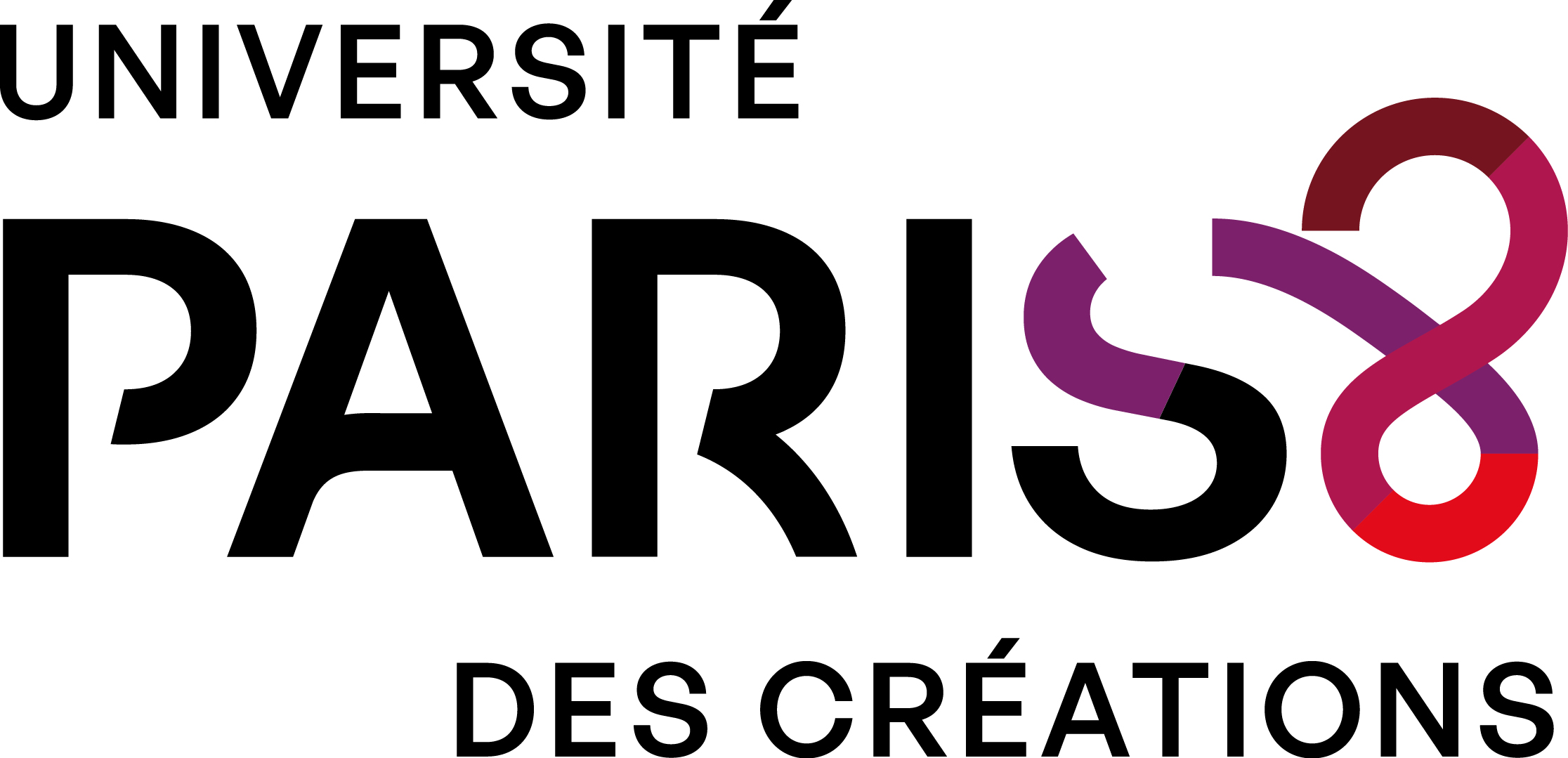
![]()
|
Nathalie DURIEZ | Professeur de psychologie clinique et psychopathologie (LPPC, Université Paris 8) et thérapeute familiale au CSAPA Monceau, responsable pédagogique du DU Clinique de la Relation et Intervention Stratégique, du DU Approche stratégique et systémique de l’éducation et 3 autres diplômes. Auteure de « Changer en famille. Les modérateurs et les médiateurs du changement en thérapie familiale » (Erès) et « Haut potentiel et haute sensibilité. Approches plurielles en psychologie » (Dunod) "Sortir d’un mode de pensée causal pour accepter la logique de la régulation émotionnelle" Les fondateurs de l’approche systémique nous ont permis d’envisager les symptômes non plus avec une causalité linéaire mais avec une causalité circulaire. Nous restons cependant dans un mode de pensée causal avec l’idée que chaque maillon de la chaîne participe au pattern transactionnel et qu’en modifiant une réponse dans le cycle d’interactions, c’est l’ensemble du système qui va se réorganiser. Certes ! Mais cette logique rationnelle vient souvent se heurter aux résistances des patients ! Et si le changement peut advenir dans le cadre sécurisé de la séance de thérapie familiale, l’ancien pattern transactionnel réapparaît à la maison dans les contextes de stress. Afin de comprendre et d’accepter certains comportements ou certains messages implicites, nous proposons de penser la logique de la régulation émotionnelle avec la famille. La pleine conscience et l’acceptation des émotions qui nous traversent devraient permettre à la fois de méta-communiquer sur le langage de nos émotions mais aussi d’accepter les messages émis par les autres membres de la famille sans les interpréter comme une intention consciente de communication. La co-régulation des émotions provenant du thérapeute peut aider à tendre vers cette acceptation du langage du corps, révélateur de l’histoire et de la subjectivité de chacun. Une vignette clinique viendra illustrer notre propos. |
|
Marie FOUCAUD | Psychologue, thérapeute familiale, thérapeute EMDR, responsable de l’unité de recherche et coordinatrice d’un dispositif expérimental de consultations familiales en protection de l’enfance pour le Groupement Associatif CIThéA. "Consultations familiales en protection de l’enfance : les leviers du changement" Les professionnels qui interviennent auprès des familles suivies en protection de l’enfance sont exposés à de hauts niveaux de souffrance individuelle, de violence relationnelle, de symptomatologie et de psychopathologie. L’impact des représentations auxquelles ils peuvent être confrontés, les effets des mécanismes vicariants, le poids des résonances et l’influence des désirs de réparation sont autant d’écueils pour penser la complexité des situations, des interrelations et des enjeux systémiques. Dans ce cadre, l’approche systémique offre des outils précieux pour penser les places de chacun dans les différents systèmes, les rôles, les alliances et les contre-alliances, ainsi que leur fonction dans le maintien d’un équilibre souvent fragile. Les mesures de consultation familiale ordonnées par le juge des enfants ou confiées par l’Aide Sociale à l’Enfance ont vocation à questionner et soutenir une dynamique de changement vis-à-vis des processus de répétition. En s’appuyant sur les ressources et les compétences des familles, il s’agit de donner des clés pour transmettre autrement leur histoire et leur vécu. Dans cette communication, nous nous attacherons à mettre en lumière, dans ce cadre de contrainte judiciaire, le travail du lien et des émotions, tout à la fois objets à réparer et outils thérapeutiques. |
|
Sébastien GARDELLE | Psychologue clinicien en pratique gérontologique en UHR (Centre Hospitalier de Marmande-Tonneins) et SMR (Centre Hospitalier de Casteljaloux), doctorant au LPPC (Université Paris 8). Auteur de « L’Ehpad et ses bénéficiaires : les entendre pour agir ! » (Éditions Complicités). "L’approche causaliste des Maladies Neuro-Dégénératives : sortir d’un postulat largement diffusé" A l’aube de l’explosion démographique des cas de maladies neuro-dégénératives, l’approche psycho-éducative de la relation aidant/aidé reste l’approche la plus utilisée à travers le monde. Cependant, nos pratiques cliniques nous font rencontrer des familles en situation de détresse extrême pour lesquelles il convient de penser des méthodes d’accompagnement bien différentes. Spécifiquement, l’aide aux aidants est une réponse de première intention qui vient répondre aux besoins d’accompagnement des familles dont un membre est porteur d’une maladie neuro-dégénérative. Ainsi, il y aurait d’un côté la classe des aidants, et de l’autre celle des patients. Les uns et les autres seraient en souffrance et le changement de communication des uns aurait pour conséquence une amélioration de la relation avec les autres. Or, ces approches psycho-éducatives de l’aidant ont tendance à oublier, si ce n’est occulter, les relations prémorbides qui unissent ces personnes au sein d’une même famille. Au cours de cette communication, sous forme de conte systémique, nous proposerons de sortir de l’ornière causaliste pour explorer le large champ qui s’ouvre à nous quand nous appréhendons le système familial avec sa temporalité, ses compétences et sa créativité. |
Conférence n°2 - Coaching Clinic
09h00 - 10h30
En partenariat avec
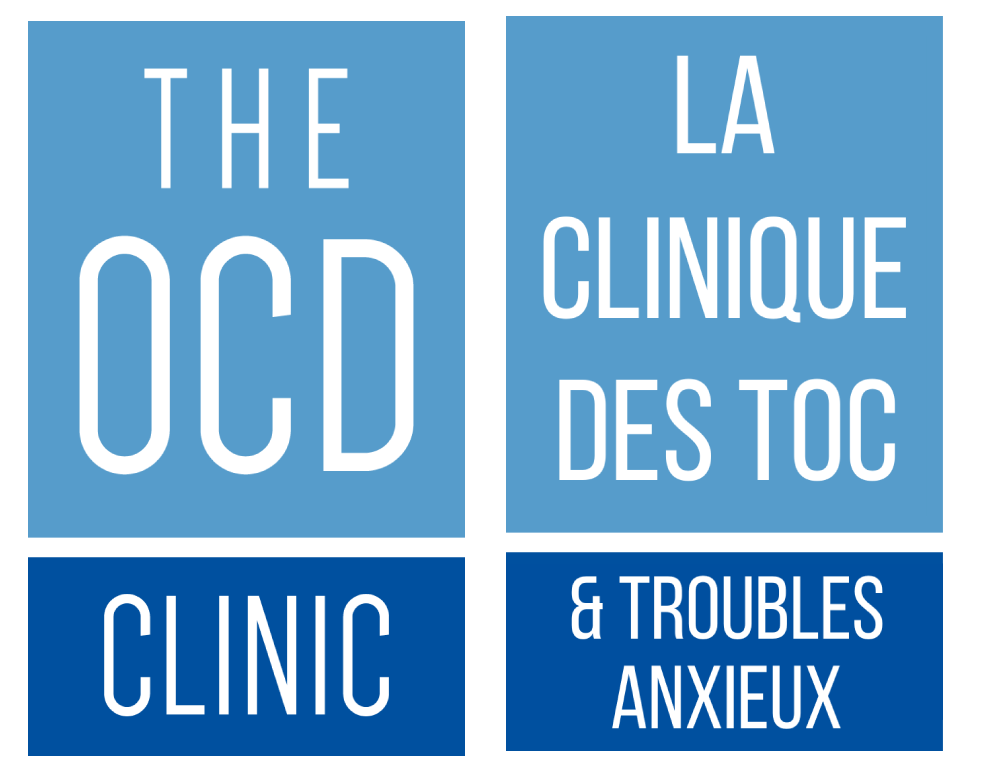
![]()
![]()
Coaching et burnout
|
Claudette PORTELLI | Conférencière et praticienne de la pensée systémique - PhD en Psychologie, psychologue du CTS, formatrice et coach (Italie - Malte). Auteure de "La connaissance par le changement", "Obsessions , compulsions , manies : les comprendre et les vaincre rapidement" et "Le nuove dipendenze". Coaching et burnout : Éviter l'épuisement professionnel Aldous Huxley, philosophe et auteur renommé, a exprimé un sentiment puissant avec cette citation : « L'expérience n'est pas ce qui vous arrive, c'est ce que vous faites de ce qui vous arrive. La vie nous réserve certainement des défis et des surprises, certaines positives, d'autres négatives. Cette citation nous rappelle que nous ne pouvons pas contrôler ce qui nous arrive (les événements eux-mêmes), mais que nous avons un immense pouvoir sur la manière dont nous réagissons à ces événements.
|
|
Avec la collaboration de | Psychologue, thérapeute familial et superviseur. Il travaille en Irlande, en Italie et à Malte. Il est associé principal à la recherche et chargé de cours à la Dublin City University et fondateur de la Clinique des TOC® et des troubles anxieux. |
Conférence n°3 - Entreprise
09h00 - 10h30
En partenariat avec
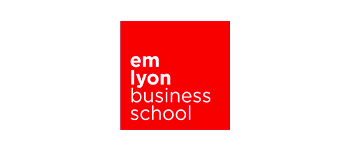
![]()
|
Thierry NADISIC | Thierry Nadisic est professeur en leadership à emlyon business school. Docteur et chercheur en comportement organisationnel, il est aussi professeur agrégé et coach certifié. Ses recherches sont centrées sur les sentiments de justice, les émotions et l’épanouissement au travail. Il dirige des programmes de transformation comportementale pour des personnes, des équipes et des organisations. Il anime également des conférences, publie des chroniques dans les médias et est l’auteur de plusieurs ouvrages dont : « « Leadership experience » et « Les managers aussi vivent des injustices » chez Dunod. "Sentiment d’injustice et management" Des responsables qui ont le sentiment d’être traités de façon juste par leur entreprise forment une communauté managériale engagée au service de buts communs. Or une recherche qui a fait l’objet d’un livre récent publié aux éditions Dunod, « les managers aussi vivent des injustices » https://www.dunod.com/entreprise-et-economie/managers-aussi-vivent-injustices-12-recits-analyses-par-12-experts, montre que les responsables font face à de nombreuses injustices au travail. Cette conférence montre comment ils vivent et dépassent un burn-out, une trahison d’un collègue sous pression de performance, une décision de la direction de ne pas abandonner un produit pourtant dangereux, un harcèlement de la part de son chef lors d’une installation à l’étranger, un vol de sa start-up en intelligence artificielle par un partenaire, des comportements de manipulation dans une fusion-acquisition, des discriminations liées au genre et à la couleur de peau ou le rejet par son entreprise de ses pratiques de management durable. On analysera dans quelle mesure ces incidents dévoilent les enjeux du travail et du management dans nos entreprises contemporaines. |
Pause 30 minutes
Conférence n°1 - Entreprise
11h00 - 12h30
En partenariat avec

![]()
|
Michel PAILLET | Serial entrepreneur, associé fondateur de Cognitive Companions, président de AE-MCX (réseau intelligence de la complexité), président de X Sciences de l'Homme et de la Société (X-SHS), président d’honneur de XMP-Consult. Diplômé de l'Ecole Polytechnique (X92), de l'EHESS-HEC-ENS Ulm Master II en analyse et politique économique, docteur es sciences économiques (X), Visiting Fellow Harvard, admis en thèse d’anthropologie des mondes contemporains en 2003 à l’EHESS auprès de Jonathan Friedman, Michel propose depuis 22 ans dans le cadre de l’entreprenariat innovant des solutions opérationnelles d’avant pointe visant à accélérer l’exécution des transformations (forcément) complexes des grandes organisations, permises par les technologies cognitives. En tant que citoyen, il est profondément impliqué dans la catalyse des prises de conscience de ses contemporains sur l’existence de paradigmes épistémologiques émergents qui permettent aux dirigeants d’envisager des façons profondément régénérées de faire face aux grands défis du 21ième siècle. "Un responsable peut-il être irresponsable* ?" Dans quelle mesure la situation-problème perçue par un responsable, typiquement un dirigeant, est-elle symptomatique de son propre point aveugle ? Dans quelle mesure est il partie prenante du problème qu'il perçoit ? Dans quelle mesure il le génère ? Au cours de l'intervention, nous évoquerons:
*Qui se conduit sans assumer de responsabilités, sans envisager les conséquences |
|
Valérie BRUNEL | Praticienne du changement systémique, sociologue clinicienne, psychosociologue, Valérie Brunel construit des dispositifs qui facilitent l’évolution des organisations vers des fonctionnements soutenables et régénératifs. Elle a notamment co-construit le parcours initial de la Convention des Entreprises pour le Climat. Elle a récemment co-publié pour BPIFrance un livre blanc sur les approches régénératives. Elle a co-créé un jeu pédagogique, La Fresque Systémique, pour appréhender le changement de paradigme vers des systèmes régénératifs. "Appréhender le changement de paradigme vers des systèmes régénératifs avec un jeu sérieux : La Fresque Systémique." La Fresque Systémique est un atelier pédagogique qui vise à s’initier au regard systémique, écologique et régénératif. Modélisant notre monde sous forme de systèmes imbriqués, le jeu consiste à identifier les croyances fondamentales et les règles du jeu qui sous-tendent le fonctionnement de nos systèmes socio-politiques, économiques et productifs actuels, et qui, par émergences indésirables, créent le nexus de défis écologiques, sociaux et politiques actuels. Il s’agit ensuite de transformer ces croyances et règles du jeux pour construire des systèmes régénératifs. Ainsi, chacun, pouvoir public, citoyen ou encore acteur économique, peut identifier les axes de transformations à suivre pour augmenter la robustesse de nos systèmes sociaux, économiques et productifs, et garder notre système terre habitable. |
|
Philippe FLEURANCE | Professeur honoraire de l’Institut National des Sports, de l’Expertise et de la Performance (INSEP) : Ancien Directeur du Laboratoire Psychologie et Ergonomie du Sport ; ancien Chargé de Mission Etudes, Ingénierie et Innovation auprès de la Mission Expertise de l’INSEP - Membre du Réseau Intelligence de la Complexité - Programme européen Modélisation de la CompleXité (RIC-MCX). Dans mon travail et mes écrits, je me suis attaché à repenser la construction savante de l’étude des phénomènes en examinant les ressources offertes par les théorisations de la complexité. "Dimension heuristique du processus de modélisation et simulation des phénomènes" Il me semble nécessaire de s’interroger sur les régimes de rationalité qui nous organisent dans le cadre de référence conventionnel (i.e. pour faire rapide « linéaire ») afin de les reconsidérer et prendre acte des limites des connaissances produites. Ce changement paradigmatique comporte plusieurs courants que l'on peut regrouper sous la bannière des sciences de la complexité. Celles-ci s'attachent notamment à comprendre comment les interdépendances, interactions et rétroactions qui relient les éléments d'un système s'organisent en son sein, face à l’environnement et dans le temps. Leur modélisation peut être présentée comme l’action de conception – construction, à l’aide d’artefacts symboliques, de représentations de phénomènes perçus ou conçus par un « observateur-descripteur ». Les modèles sont des simplifications du système étudié qui peuvent être manipulées pour contourner les limites de l’expérimentation. Dès lors que l’on interprète leurs résultats comme des hypothèses susceptibles d’être considérées dans tel ou tel contexte, cette démarche exploratoire et heuristique apparaît comme un outil de choix pour étudier « in silico » les systèmes complexes car elle permet de tester rapidement différents scénarios et alternatives. Parmi ces outils, les Jeux de Rôles sont particulièrement adaptés à la concertation entre acteurs et à un usage conjoint de modèles de dynamique des ressources. |
|
Jérôme LAZARD | Diplômé de NEOMA Business School, ancien publicitaire, ancien événementeur, Co-fondateur et co-dirigeant d’ideoscripto (cabinet de maïeuticiens travaillant sur la prise de conscience du changement et la créativité), Créatif, raconteur d’histoires, facilitateur complexe et empêcheur de tourner en rond "Comment rendre la transformation irrésistible ou l’art de l'expérience room" Au cours de l'intervention, nous évoquerons:
|
Conférence n°2 - Clinique
11h00 - 12h30
En partenariat avec

![]()
![]()
|
Eric BARDOT | Psychiatre, psychothérapeute ,directeur Institut Mimethys, concepteur TLMR, conférencier Pensée causale et monde traumatique Le traumatisme crée un monde où les relations humaines sont détruites et le sens est perdu, générant un présent inquiétant et répétitif. La pensée causale tente de rationaliser ce chaos en redonnant forme au temps, mais risque une régression infinie dans la recherche des causes. Chaque cause n’est alors que l’effet d’une cause antérieure. Des approches thérapeutiques innovantes comme la TLMR et la thérapie narrative vont au-delà de la causalité, réintroduisant une perception relationnelle et affective, et rouvrant une temporalité fluide. Ces pratiques permettent au sujet de redécouvrir sa capacité de résistance au traumatisme et de redonner sens à ses actions. L'objectif final est une reconstruction psychique holistique, intégrant les dimensions relationnelles et affectives, pour ouvrir la voie à un futur porteur de sens. |
|
Stéphane ROY | Psychologue, psychothérapeute, Docteur en psychologie. Il co-dirige l'institut Mimethys et exerce en cabinet libéral. Il est formateur en TLMR (Thérapie du Lien et des Mondes Relationnels), thérapies brèves et hypnose. Il intervient dans diverses universités dans le champ du psychotrauma. |
|
Julien BETBEZE | Psychiatre, psychothérapeute, rédacteur en chef de la revue Hypnose et thérapies brèves, formateur Thérapie narrative |
Conférence n°3 - Clinique
11h00 - 12h30
En partenariat avec

![]()
![]()
Approche centrée sur la solution pour co-construire des réalités différentes
La conférence réunira des intervenants internationaux issus de la psychologie, de la psychothérapie et de l'anthropologie qui partageront leurs idées et leur expertise sur l'application de l'approche centrée sur les solutions dans le cadre du travail avec les individus, les couples, les équipes et les organisations. Des présentations, des ateliers, des exemples de cas et des discussions inviteront les participants à explorer l'approche centrée sur les solutions et à mettre en lumière la manière dont elle peut être appliquée dans différents contextes pour coconstruire avec les clients leur propre manière d'être et d'agir différemment dans le monde.
|
Rytis PAKROSNIS | Docteur en psychologie, psychologue certifié EuroPsy, professeur associé au département de psychologie de l'université Vytautas Magnus (Kaunas, Lituanie), psychologue à la clinique de psychologie de l'université Vytautas Magnus et dans un cabinet privé, professeur invité à l'université de Varsovie (Pologne), membre du conseil d'administration de l'EBTA, des groupes de travail « Recherche », « Psychothérapie » et « Théorie de la SF ». Membre du comité consultatif éditorial du JSFP, auteur et co-auteur d'articles de recherche et de chapitres de livres sur l'approche centrée sur la solution. Au-delà de la pensée causale avec l'approche centrée sur la solution Dans cette présentation interactive, certaines idées et certains éléments de l'approche centrée sur la solution seront explorés à travers une démonstration de la façon dont ils utilisent la pensée non causale pour initier et stimuler un changement positif dans divers contextes. Une attention particulière sera accordée à la question miracle, une technique caractéristique de l'approche, qui invite les clients à construire un avenir différent en allant au-delà de la chaîne action-conséquence de la pensée causale. J'espère que les idées, les exercices, les résultats de recherche et les exemples de cas présentés permettront aux participants de mieux comprendre la pensée centrée sur la solution et les inciteront à l'essayer dans leur propre pratique. |
|
Andreea M. ŻAK | Docteur en sciences sociales, psychologue, psychothérapeute certifié, membre du groupe de travail sur la recherche de l'Association européenne de thérapie brève (EBTA), actuel chef du groupe de travail sur la coopération internationale de l'EBTA, rédacteur responsable des articles de recherche du Journal of Solution Focused Practices (JSFP). Elle cherche actuellement des moyens d'enrichir l'approche centrée sur la solution avec le modèle centré sur l'émotion. Elle mène des psychothérapies individuelles pour adultes et couples dans le cadre de son cabinet privé « Inaczej » (Différemment) à Wadowice, en polonais, anglais et roumain. Auteur ou co-auteur d'articles publiés dans des revues scientifiques nationales et internationales. Le processus de co-construction avec deux personnes dans la pièce : De la plainte à l'objectif La thérapie brève centrée sur la solution (SFBT) est une approche orientée vers l'avenir et basée sur les forces. La description de la vision de l'avenir souhaité et l'identification des forces et des ressources déjà existantes que possède le client se font dans le cadre d'un processus de co-construction dans lequel le praticien centré sur la solution guide le processus à partir d'une position de recul. Cela peut être plus facile à dire qu'à faire, surtout lorsque dans la pièce il y a plus d'un client, chacun avec son propre objectif et ses propres ressources. Au cours de cet atelier, je vous invite à expérimenter et à réfléchir au processus de co-construction avec la participation de deux personnes dans la pièce. Nous discuterons de la manière dont le praticien centré sur la solution peut guider la conversation avec une dyade en s'éloignant de leurs plaintes et attentes individuelles l'une envers l'autre, et en atteignant un terrain d'entente ancré dans les compétences personnelles de chaque individu. |
|
Jonas WELLS | Jonas Wells est responsable de la coordination à l'Agence de coordination de Dalarnas Sud, où il forme à la pratique axée sur les solutions des dirigeants et des professionnels du secteur public, et soutient les méthodes de travail communes entre les organisations. Il est également doctorant à l'université de Lund, en Suède, où il rédige sa thèse en anthropologie sociale sur la pratique centrée sur la solution. Il a écrit un livre sur les présupposés de la pratique centrée sur la solution. Prendre du recul pour trouver de nouvelles possibilités Suite au travail de Nora et Gregory Bateson sur l'écologie de la communication, j'ai exploré comment l'apprentissage d'une pratique centrée sur la solution est potentiellement plus axé sur le travail collaboratif dans la relationnalité, en devenant plus conscient de l'enchevêtrement dans lequel nous sommes déjà - et en travaillant avec et à travers l'autre. Cette courte conférence exploratoire sur la prise de recul comme moyen de perturber la causalité est une expérience et un rapport de sessions de formation, de situations difficiles et d'apprentissage de la part de mes étudiants sur ce qui fonctionne. |
Pause déjeuner
12h30 - 14h00
Conférence n°1 - Clinique
14h00 - 15h30
En partenariat avec
![]()
![]()
|
Maria-pascale LUKENGA | PhD Student – Service de Psychologie – UMONS |
|
Jennifer DENIS | Psychologue clinicienne, docteure en psychologie. Psychothérapeute analytique et Thérapeute systémicienne. Spécialisée en psycho traumatologie et en clinique de crise. Professeure à l’Université de Mons, Service de Psychologie clinique (Belgique). Responsable de l’Atelier Systémique (https://ateliersystemique.org) : Groupe de formation et de recherche en thérapie familiale et en interventions systémiques en collaboration avec le CEFS (Centre d’Étude de la Famille et des Systèmes, Bruxelles) et l’UMONS. Autrice de plusieurs articles, chapitres de livre et livre, conférencière, formatrice et superviseure d’équipe. Comprendre la systémique à travers des œuvres cinématographiques Le cinéma parle de la vie, en nous faisant vivre d’autres vies que la nôtre ! En voyageant à travers certaines œuvres cinématographiques, nous vous proposons de mieux comprendre des concepts clefs de la systémique. Notre objectif est d’approcher, de manière innovante, l’étude de l’individu dans son environnement, mais aussi de l’ensemble des systèmes dans lesquels il évolue en tant que sujet : équilibre et déséquilibre du groupe familial, analyse institutionnelle, organisation industrielle, médiation conventionnelle et judiciaire,… A la faveur du 7ème art et des situations cliniques issues de la pratique professionnelle des intervenants, nous vous proposons de revenir sur le décryptage de sens des notions pertinentes inscrites dans le cœur de l’approche systémique. Exemples de films abordés :
|
|
Lionel SOUCHE | Psychologue clinicien de formation, la pratique professionnelle de Lionel résiste aux clivages méthodologiques comme théorico-cliniques. Un large panel de référentiels soutient ses interventions en tant que psychothérapeute et formateur notamment l'approche systémique qu'il conjugue volontiers avec l'approche psychodynamique ou celle du psychotrauma. Il enseigne aux étudiants peu jusqu'à très avancés en formations initiale ou continue auprès de l'UCB Lyon1, l'Université Lyon2, l'UCLy et l'EPP. L'analyse de la pratique constitue un intérêt majeur dans ses activités cliniques, à ce titre, il encadre une supervision groupale certifiée EuroPsy auprès de jeunes psychologues. Enfin, il est directeur de collections pour la maison d'édition In Press. |
Conférence n°2 - Ecologie
14h00 - 15h30
En partenariat avec
![]()
![]()
![]()
![]()
Passionnés de longue date par les approches systémiques et en particulier le fonctionnement des systèmes vivants et humains, Olivier Hamant et Anne Gouyon vont répondre et se répandre autour de plusieurs questions, comme par exemple :
- le mot "système" est partout, mais au-delà de l'appel à penser et agir de manière systémique, quelles grilles de lecture, quels leviers d'intervention, d’action, de changement nous fournissent les approches systémiques ? Olivier Hamant s'appuiera sur ses travaux sur les principes de durabilité des systèmes vivants tels que la robustesse, la sous-performance et l'incohérence. Anne Gouyon fera le lien entre ces approches biologiques, écologiques, et les principes du changement systémique stratégique développé par l'école de Palo Alto depuis Gregory Bateson.
- Les marques de l'humanité sont omniprésentes sur Terre, sous le signe de la performance et du contrôle. En miroir, les multiples impacts sur notre milieu questionnent les valeurs de ce « progrès » et sa trajectoire. Alors que faire pour apprendre une autre façon d'habiter la Terre ? Olivier Hamant parlera de la façon dont nous pouvons nous inspirer du vivant, et Anne Gouyon montrera comment dépasser nos tentatives de solution de "contrôle" pour retrouver la capacité d'être avec et plus contre le vivant.
- L'écologie est la science des relations entre les êtres vivants et leur milieu. Quels parallèles peut-on faire la santé, l'évolution des écosystèmes et celle des humains, qu'elle soit d'ordre physique, mental ou social/ relationnel voire spirituel ? Quelles leçons en tirer pour une "thérapie systémique" de l'Homme pouvant l'amener à guérir sa relation au vivant et passer en mode régénératif ? Olivier Hamant évoquera ses travaux sur les santés communes, et Anne Gouyon la nouvelle version en cours de son ouvrage Réparer la planète.
|
Anne GOUYON | Ingénieur agronome et Dr. en Sciences Économiques et Sociales (AgroParisTech), Maître ès Psychologie Clinique formée à l’approche systémique stratégique (Univ. Paris 8-LACT), Administratrice de l'Université Paris-Saclay.
|
|
Olivier HAMANT | Biologiste, chercheur au sein de l’école normale supérieure de Lyon, et directeur de l'institut Michel Serres. Il a publié une centaine d'articles scientifiques sur la biophysique et le développement des plantes. Nourri par cette recherche fondamentale, il contribue à plusieurs projets dans les domaines de l'art, de la science et de l'éducation autour des enjeux existentiels de l'Anthropocène. La question de la robustesse biologique vient notamment alimenter une réflexion sur les leçons à prendre du vivant pour habiter la Terre.
|
Pause 30 minutes
Conférence n°1 - Clinique
16h00 - 17h30
En partenariat avec
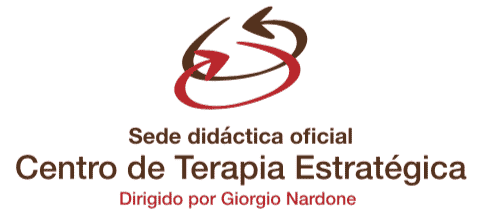
![]()
![]()
Nouvelles solutions, changements stratégiques : la thérapie stratégique brève et ses applications du CTE à Bogota/Colombie
Des spécialistes du Centre de thérapie stratégique de Bogota, affilié au Centro di Terapia Strategica d'Arezzo du professeur Nardone, parleront de quatre sujets cliniques et actuels pour les professionnels de la santé mentale : l'insomnie, les troubles obsessionnels, les vomissements et l'EBT appliquée au domaine de la psychiatrie
|
María ANDREA HERNANDEZ | María Andrea Hernández est psychologue-psychothérapeute. Directrice du Centro de Terapia Estratégica de Bogotá en Colombie. Diplômée de l'Université de Los Andes. Master en thérapie stratégique brève. En 2008, elle a fondé le premier centre de thérapie stratégique brève en Amérique du Sud, le Centro de Terapia Estratégica de Bogotá, affilié au Centro di Terapia Strategica d'Arezzo (Italie), dirigé par le professeur Giorgio Nardone. Depuis lors, elle s'est impliquée à la fois dans la pratique clinique et dans l'enseignement, en donnant le cours d'introduction à l'EBT pour les psychologues et les psychiatres. Elle a également enseigné et supervisé des stages à l'université Javeriana de Cali et dans le cadre du master CTS en thérapie stratégique brève, proposé en Colombie et en Équateur. Elle dirige le service « Thérapie à la portée de tous » grâce à l'utilisation de la Chambre Gesell, dans le but de fournir des soins psychologiques aux populations vulnérables. Les troubles du sommeil et une solution contre-paradoxale Les troubles du sommeil touchent un tiers de la population mondiale ; l'insomnie peut devenir une maladie qui affecte non seulement la nuit mais aussi le bien-être diurne de la personne. L'insomnie peut être traitée par la thérapie stratégique brève, car la plupart du temps, la personne qui en souffre n'en parle pas à des spécialistes ou ne la traite pas correctement (automédication). L'absence de reconnaissance et de traitement adéquat de l'insomnie conduit la personne qui en souffre à la percevoir comme un état presque sans issue, surtout lorsqu'elle est chronique. Étant donné la pertinence de ce sujet, María Andrea Hernández parlera des solutions dysfonctionnelles qui alimentent le manque de sommeil, des types d'insomnie et de ses techniques paradoxales à partir du modèle TBE du professeur Giorgio Nardone |
|
Cesar Augusto ARANGO DAVILA | Psychiatre, Pontificia Universidad Javeriana - Bogotá, DC ; docteur en neurosciences, Universidad del Valle - Cali, Colombie ; psychothérapeute avec formation avancée en thérapie stratégique brève - Arezzo, Italie ; professeur honoraire à l'hôpital universitaire Fundación Valle del Lili ; ancien président de l'Association colombienne de psychiatrie biologique, Cali, Colombie, Amérique du Sud. Application de la thérapie stratégique dans la pratique psychiatrique Les psychiatres doivent disposer d'outils d'intervention psychothérapeutique. La thérapie stratégique brève peut servir de méthode d'intervention psychothérapeutique essentielle pour les psychiatres dans n'importe quel contexte, y compris les environnements institutionnels. Il s'agit d'une technique avancée, rapide et efficace qui peut être appliquée cliniquement dans trois circonstances : les symptômes ou les réactions à travers lesquels le patient suppose la maladie, la gestion spécifique des symptômes de la maladie et les plaintes du patient sans rapport avec le motif de la consultation mais qui génèrent de la tension ou de l'inconfort. Grâce au dialogue stratégique, la difficulté est caractérisée de manière assertive par des interventions qui permettent des modifications rapides de la perception, de l'émotion et de la cognition, influençant ainsi le comportement et la modulation des symptômes. |
|
Paula Andrea POSADA JIMÉNEZ | Psychologue avec une option en anthropologie de l'Universidad de los Andes (2010), thérapeute stratégique bref formé avec le maître Giorgio Nardone à Arezzo, Italie (2012) et psychothérapeute officiel affilié au CTS (Centro di Terapia Strategica, Arezzo, IT). Croyant au pouvoir transformateur de l'être humain pour reconstruire, adapter et changer sa propre réalité. Convaincue que la vie est un apprentissage et une maîtrise constants. Amoureuse du yoga comme chemin de connaissance et de réalisation de soi, pratiquante et enseignante de cette science depuis 2010. L'amant secret : un cas de vomissement (TCA) Tout au long de la présentation, la définition du vomissement en tant que trouble du comportement alimentaire dans la perspective de la thérapie stratégique brève (BST), son fonctionnement et le système perceptuel réactif (PRS) seront expliqués, ainsi que le protocole d'intervention appliqué à un cas clinique. |
|
Viviana HERNÁNDEZ | Psychologue de l'université de La Sabana, titulaire d'un master en développement humain de l'université de Manchester et certifiée en thérapie brève stratégique, avec des études en thérapies artistiques et en logothérapie. Elle fait partie du Centro de Terapia Breve Estratégica de Bogotá et a plus de 10 ans d'expérience en psychothérapie. Son approche est basée sur le développement de stratégies efficaces à partir d'une logique non ordinaire, intégrant des solutions pratiques axées sur la particularité de chaque cas. Elle a commencé sa carrière dans le domaine des addictions aux États-Unis et a travaillé dans des centres ayant une approche humaniste existentielle. Depuis le début de son expérience professionnelle jusqu'à aujourd'hui, elle a continué à consolider sa carrière au Centre de Thérapie Brève Stratégique, en perfectionnant sa capacité à offrir des solutions pratiques et transformatrices. Les obsessionnels purs : quand l'esprit devient son propre bourreau Dans le royaume des Obsessionnels Purs, les pensées intrusives deviennent des geôliers, dictant les réalités mentales et émotionnelles. Cette session se penche sur leur système perceptif réactif, illustrant comment la thérapie brève stratégique peut guider les patients vers leur libération, et fournissant aux cliniciens des outils pratiques pour briser les chaînes de cette lutte silencieuse. |
Conférence n°2 - Education
16h00 - 20h00
En partenariat avec

![]()
![]()
Bonnes pratiques pour la promotion et la coordination de transitions réussies entre l'école et le travail
Les transitions réussies entre l'école et le travail nécessitent une collaboration entre les éducateurs, les employeurs et les décideurs politiques. L'éducation plante les graines ; le travail leur permet de s'épanouir. Une bonne transition fournit un terrain fertile. Cette table ronde réunit des acteurs clés afin d'explorer les bonnes pratiques en matière de promotion et de coordination de ces transitions. Notre objectif est d'identifier les bonnes pratiques et de favoriser des partenariats plus solides. Des transitions efficaces entre l'école et le monde du travail constituent un investissement vital pour une main-d'œuvre prospère et le bien-être des générations futures.
Cette table ronde vise à réunir les principales parties prenantes afin qu'elles échangent leurs expériences et leur expertise en matière de transitions entre l'école et le monde du travail, dans le but d'identifier et de promouvoir des pratiques efficaces.
Participants : Colin Calleja, Dott.ssa Elena Tanti Burlò, Dr Louis Camilleri (Université de Malte) Dr Karen Buttigieg (Association de parents), Prof Paola Nicolini, Dott.ssa Veronica Guardabassi (Université de Macerata), Dr Claudette Portelli, Dr Matteo Papantuono (Psychologue et coachs), M. Shawn Pisani (Hilton Hotels), Anna Zarb (Cooperativa), Agence de soutien, Agence de recrutement Jobplus, et d'autres représentants.
|
Claudette PORTELLI | Conférencière et praticienne de la pensée systémique - PhD en Psychologie, psychologue du CTS, formatrice et coach (Italie - Malte). Auteure de "La connaissance par le changement", "Obsessions , compulsions , manies : les comprendre et les vaincre rapidement" et "Le nuove dipendenze". |
|
Colin CALLEJA | Doyen de la faculté d'éducation |
|
Matteo PAPANTUONO | Psychologue, psychothérapeute et formateur Matteo Papantuono compte plus de quinze ans d'expérience dans l'enseignement dans de nombreuses écoles italiennes. Il est le directeur de la Clinique des TOCs à Ancône en Italie. |
|
Paola NICOLINI | Professeur associé de psychologie du développement et de l'éducation à l'université de Macerata
|
|
Karen BITTUIGIEG | Karen Buttigieg est parent d'une jeune personne handicapée et est actuellement présidente de la National Parents' Society for Persons with Disabilities. Elle est également éducatrice et enseigne la biologie et l'éducation inclusive.
|
|
Oliver SCICLUNA | Directeur général d'Aġenzija Sapport
|
|
Esmeralda MICALLEF ZARAFA | Directeur général de LSF
|
|
Alison THWAITE | Responsable des services d'emploi à l'Association du syndrome de Down Spécialiste de l'emploi assisté et défenseur des personnes atteintes du syndrome de Down.
|
|
Shawn PISANI | Vice President at HelmsBriscoe
|
|
Louis John CAMILLERI | Psychologue de l'éducation, chercheur et conférencier à l'université de Malte, où il coordonne le Master en accès à l'éducation - Programme d'écoles et de communautés inclusives et contribue à divers cours éducatifs.
|
|
Thomas BITTUIGIEG | Je m'appelle Thomas Buttigieg, j'ai 29 ans et je suis un activiste du handicap. Depuis l'âge de 3 ans, la Fondation Equal Partners m'a soutenu et aidé à me développer et à grandir. Je suis maintenant membre du conseil d'administration de la fondation Equal Partners. J'ai suivi un cours sur les compétences de base en bureautique au MCAST, et après avoir travaillé pendant 9 ans à la FTIAS en tant qu'assistante de bureau, j'ai récemment commencé un nouvel emploi au sein du groupe Salvo Grima en tant qu'agent de soutien administratif.
|
|
Elena TANTI BURLÒ | Professeur invité, Faculté d'éducation, Département pour l'inclusion et l'accès à l'apprentissage, Université de Malte. Vice-président de la Fondation Equal Partners |
|
Veronica GUARDABASSI | Chercheur en psychologie du développement - Psychologue |
Pause 30 minutes
Conférence n°1 - Entreprise
18h00 - 19h30
En partenariat avec

![]()
|
Emmanuelle GALLIN | Diplômée de l’Ecole doctorale de l’IEP Paris, thérapeute systémicienne formée à LACT/CTS, chercheuse à LACT et doctorante en sciences de gestion des organisations, ses travaux portent sur le rôle des croyances dans le modèle de Palo Alto (Université de Limoges). Spécialisée dans l’accompagnement des TSA, TDAH et HPI, elle travaille également sur une approche systémique adaptée aux troubles du spectre autistique. Auteure de TSA, TED, TDAH, ce yoga est pour vous, co-auteure du Grand Livre du diagnostic systémique et de l’intervention stratégique et d’articles de recherche. Interaction, délégation, collaboration, cyber-interaction… Comment décrire les relations Homme-Machine ? L’IA a fait irruption dans nos vies et colonise peu à peu tous les domaines des activités humaines. Mais quelles sont les incidences de ces nouveaux types de relation ? Modifient-ils nos modes de communication ? Quelles conséquences sur notre santé mentale ? Effet Eliza, vallée de l'étrange, quelles sont les limites des interactions Hommes-Machines ? Quelle est notre capacité à entrer en relation avec la machine ? Sommes-nous entrés dans un monde de science-fiction ? | |
|
Yannick LEJEUNE | Chief Digital Officer, IONIS Education Group Yannick Lejeune est un stratège et manager opérationnel fort de 25 ans d’expérience dans l’innovation, la transformation digitale et l’ingénierie informatique. Chief Digital Officer du groupe IONIS (35 000 étudiants, 28 écoles), il supervise le pilotage stratégique du digital auprès de nombreuses équipes. Ses premières activités professionnelles lui ont permis d’accompagner des projets d’envergure pour des institutions telles que Microsoft ou la Présidence de la République, tout en mentorant de nombreuses startups dans leur transformation numérique. Diplômé de l’EPITA en Sciences Cognitives et Intelligence artificielle, de l’IAE Paris et d’HEC Paris en recherche en sciences de gestion, et formé à LACT et à Paris 8, il met en pratique le modèle systémique et stratégique de Palo Alto dans le cadre de la planification stratégique de son Groupe, de l’encadrement professionnel de ses équipes et du suivi thérapeutique bénévole de familles rencontrant des problèmes dans la prise en charge des psychopathologies de leurs enfants. Nouvelle génération d’IA et Santé Mentale, les applications Dans cette session, nous explorons l’utilisation de l’IA, notamment des LLM et agents, pour transformer la pratique thérapeutique et la compréhension des dynamiques relationnelles. L’objectif est de montrer comment l’avènement de nouveaux outils permettent l’analyse de données complexes, la simulation de scénarios, l’assistance à l’analyse et à l’accompagnement permettent d’identifier des schémas subtils de souffrance, dans un cadre de thérapie personnelle ou d’entreprise, et d’ajuster en temps réel les interventions. Dans ce cadre, l’approche systémique offre des protocoles innovants pour repenser les interactions, personnaliser les traitements et anticiper les signaux de détresse. À travers de nombreux exemples, nous montrerons comment l’IA peut devenir un levier d’innovation thérapeutique, tout en questionnant les enjeux éthiques ou de santé de son déploiement. |
Conférence n°2 - Clinique
18h00 - 21h00
En partenariat avec
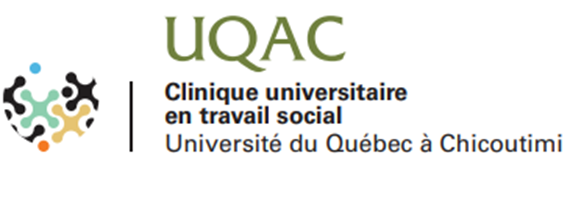

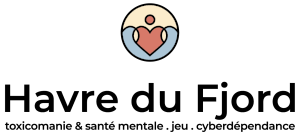
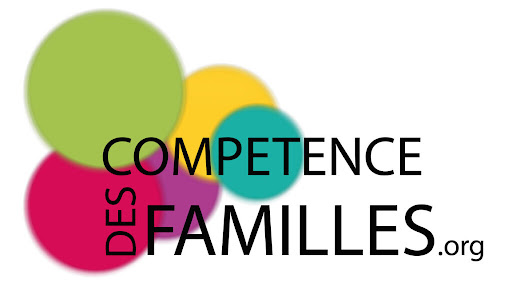
![]()
Sur le chemin de la compétence des familles
La proposition de Guy Ausloos de considérer les bénéficiaires de nos actions éducatives, psycho-médico-sociales et thérapeutiques prioritairement sous l’angle de la compétence plutôt que celui de la défaillance a révolutionné nos pratiques. Il a mis en avant l’importance d’apprivoiser les familles, de créer les conditions pour une intervention humaine, chaleureuse et empathique. Il affirmait : « Nous ne sommes pas responsables des changements dans les familles mais de créer un contexte de confiance et de sécurité pour que puisse survenir l’imprévisible. »
|
Modératrice | Directrice du Havre du Fjord (centre en toxicomanie et santé mentale pour adolescents), détentrice d’une maîtrise en gestion des organisations de l’Université du Québec à Chicoutimi. Auteur de l’application AddictA. |
|
Stéphane BUJOLD | Psychologue, Directeur clinique d’un centre de thérapie pour adolescents qui présentent des problèmes de dépendance et de santé mentale, formateur, superviseur et conférencier au Québec et en Europe. La compétence des familles, il faut la voir pour y croire La compétence des familles est cette croyance ingénue ou stratégique que les familles ont la capacité de résoudre les problèmes auxquels elles sont confrontées, qu’elles peuvent retrouver des savoirs qu’elles ont oubliés dans les moments de tempêtes. Cette posture exige que les hypothèses et les pratiques professionnelles, trop souvent linéaires, retrouvent une dimension circulaire en incluant notamment chacune des fonctions familiales au cœur du travail avec les familles en difficulté. |
|
Nathalie SASSEVILLE | Dre Nathalie Sasseville est travailleuse sociale, professeure et chercheuse à l’Unité d’enseignement en travail social de l’Université du Québec à Chicoutimi (Canada). Elle est également cofondatrice et directrice de la Clinique universitaire de travail social de l’UQAC où elle forme les personnes étudiantes à l’intervention systémique familiale. L’intervention familiale systémique en formation initiale Cette intervention présentera une formule pédagogique de formation sur l’intervention systémique familiale auprès des futurs travailleurs.ses sociales au Québec. Elle mettra en lumière les enjeux de la formation mais aussi ses apports à la pratique des futurs praticiens. |
|
Guy HARDY | Assistant social, Guy Hardy a été directeur d’un centre d’aide aux familles. Il est formateur en approche systémique. Auteur de nombreux articles, il est l’auteur du livre : « S’il te plait ne m’aide pas » Edit ERES, Toulouse 2001 La compétence des familles : réel projet ou nouvelle mystification ? Jusqu’à un passé récent, la « demande d’aide » était considérée comme un préalable essentiel et fondamental, pour ne pas dire indispensable, à toute intervention éducative, sociale ou thérapeutique. Son absence handicapait fortement voire rendait inefficace l’aide. Or, l’évolution de notre société et le sens qu’y prend la protection de l’enfance, de l’adolescence, des personnes, des familles font que de plus en plus d’intervenants aident des bénéficiaires contraints d’accepter leur aide. Et ces « bénéficiaires », soit acceptent l’aide du bout des lèvres, soit perçoivent celle-ci comme une violence, une intrusion dans leur espace privé. Comment accueillir, intervenir auprès d’enfants, d’adolescents, d’adultes, de parents, de familles qui ne demandent rien et qui de surcroît se méfient de leurs « aidants » ? Comment, dans ce contexte, aborder notre travail au travers du prisme de la compétence ??? |
Conférence n°3 - Clinique
18h00 - 19h30
En partenariat avec

![]()
![]()
Le système d'enseignement modulaire pour la thérapie et les soins familiaux dans les cas de migration forcée
Le contexte contemporain du voisinage du Mexique avec les États-Unis nous a amenés à lancer ce que nous appelons Acción Migrante, une plateforme numérique à travers laquelle nous offrons des actions en ligne de confinement, d'orientation et de soutien aux migrants mexicains et aux personnes d'autres nationalités, qui vivent aux États-Unis ou qui sont déjà au Mexique. Nous présenterons comment le système d'enseignement modulaire de la thérapie familiale peut être combiné avec les soins à distance pour les personnes et leurs familles en situation de migration forcée.
|
Mtro.Pedro VARGAS AVALOS | Pedro Vargas Avalos est diplômé en psychologie de l'UNAM FES Zaragoza. Il est titulaire d'un master et d'un doctorat en philosophie des sciences de l'UAM-I. Il est professeur de carrière à l'UNAM-FES de Saragosse. Il est responsable académique du master en thérapie familiale à l'UNAM de Saragosse. Il s'est formé au Centre de thérapie brève du MRI pendant 10 ans, a suivi des ateliers avec les originaux du modèle John Weakland, Richard Fisch et Paul Watzlawick, ainsi qu'une supervision avec Karin Schlanger. Elle a publié des ouvrages en espagnol et en anglais sur la thérapie brève. Elle fait des recherches sur l'enseignement de la thérapie systémique en mettant l'accent sur la thérapie brève et sur l'historiographie de la thérapie familiale avec l'influence de Gregory Bateson et du pragmatisme classique. Elle participe à des réseaux internationaux de promotion de la thérapie familiale avec des groupes aux États-Unis et en Europe. Le système d'enseignement modulaire pour la thérapie familiale Le système d'enseignement modulaire est un modèle pédagogique qui vise la formation complète des étudiants en considérant trois dimensions en interaction : l'enseignement, la recherche et les liens avec la communauté. Ce système est développé dans une situation réelle et concrète et vise à permettre aux étudiants d'être capables de résoudre des problèmes dans des situations quotidiennes. L'apprenant a un rôle central et bénéficie du fait qu'il favorise la flexibilité de son rythme d'apprentissage, l'autonomie et l'existence d'une structure séquentielle qui permet le développement de son processus d'apprentissage. L'utilisation de ce système pour la formation en thérapie familiale est une proposition de l'antenne de Saragosse de la Résidence de thérapie familiale.
|
|
Dra. Clara HAYDEE SOLIS PONCE | Clara Haydee Solis Ponce est titulaire d'un diplôme de psychologie de l'UNAM, d'un master en orientation éducative et familiale, d'un master en thérapie stratégique brève et d'un doctorat en éducation. Elle travaille en tant que professeur associé « C » à plein temps dans la licence de psychologie ; elle est tutrice et superviseur clinique dans la résidence de thérapie familiale du programme unique de troisième cycle de l'UNAM, elle coordonne le programme d'attention psychologique pour la communauté de la FES Zaragoza, elle coordonne le programme de service social « Attention psychologique brève » dans le CUAS Tamaulipas de la FES Zaragoza. Thérapie brève de résolution de problèmes pour les soins aux migrants sous la forme d'une thérapie à séance unique Cette présentation vise à décrire et à analyser le processus d'apprentissage de la thérapie brève dans le contexte d'un programme de soins pour les personnes soumises à la migration forcée. Le modèle pédagogique est basé sur le système d'enseignement modulaire qui vise la formation intégrale de l'étudiant à partir de trois fonctions substantielles : l'enseignement, la recherche et la sensibilisation de la communauté, ces éléments en relation favorisant la construction de connaissances pour la résolution de problèmes dans une réalité sociale particulière. Dans le cas présent, ces relations seront illustrées dans le contexte d'un programme de soins pour les personnes et leurs familles en situation de migration forcée. |
|
Gerardo Benjamín TONATIUH VILLANUEVA OROZCO | Professeur à la faculté de psychologie et à la Facultad de Estudios Superiores Zaragoza de l'UNAM. Il est diplômé en psychologie de la faculté de psychologie de l'université nationale autonome du Mexique, titulaire d'un master en psychologie, avec résidence en thérapie familiale, et d'un doctorat en psychologie, dans le domaine de la psychologie sociale et environnementale. L'un de ses domaines de recherche est la communication et l'interaction, le conflit, l'infidélité, la jalousie, le pouvoir et l'intimité dans les couples. Il a publié, en tant qu'auteur principal et coauteur, des articles dans des revues indexées, 17 chapitres de livres et a participé à deux ouvrages spécialisés sur les sujets susmentionnés. Il est tuteur et superviseur clinique dans la résidence de thérapie familiale du programme unique de troisième cycle de l'UNAM. L'approche stratégique de Jay Haley en matière de soins aux migrants dans le cadre de la thérapie à séance unique La mise en œuvre d'une méthodologie de soins pour les situations d'urgence qui prend en compte les principes du modèle de thérapie familiale stratégique de Jay Haley sera présentée dans le contexte de la migration forcée que les États-Unis encouragent vers le Mexique. La modalité de prise en charge est effectuée à distance et une plateforme institutionnelle est utilisée pour établir le lien avec les personnes et leurs familles dans la situation de menace ou de déportation elle-même. |
Pause 30 minutes
Conférence n°1 - Clinique
20h00 - 21h30
En partenariat avec

![]()
![]()
|
Franca LA CARRUBBA | Franca a obtenu un diplôme de psychologue clinicienne et un master en psychologie communautaire à l'université catholique « Nuestra Señora de la Asunción » (Paraguay).En outre, elle a obtenu plusieurs diplômes de troisième cycle dans les domaines suivants « Psychodiagnostic et éducation spéciale ; « Neuropsycholinguistique » ; Santé mentale dans la violence politique et les catastrophes ; Méthodologie d'investigation ; Didactique universitaire. Elle est doyenne de la faculté des sciences du comportement de l'université autonome du Paraguay (UAP), depuis 2011. Au sein de cette même université, elle est professeur principal des différents cours de psychologie, conseillère des thèses de licence et « Postgraduate Coordinator » dans divers diplômes de troisième cycle. Elle travaille également en tant que psychologue clinicienne. Elle a été présidente de la : « Société paraguayenne de suicidologie (depuis 2012 à 2020) ; « Société paraguayenne de psychologie » (depuis 2015 à 2022). Elle est membre du : « Réseau mondial de suicidologie » ; » Union latino-américaine de psychologie (ULAPSI) ; « Conseil national des consultants en édition, catégorie professionnelle de la revue de recherche en psychologie “Eureka”. Incidence des réseaux sociaux sur les relations sentimentale Les réseaux sociaux font partie de notre vie quotidienne, nous avons à portée de main tous les types d'informations et nous sommes en contact avec des personnes dans différents domaines, tels que le niveau social, le travail ou le niveau d'éducation, et cela peut être un grand avantage. Mais en ce qui concerne les couples, les réseaux sociaux peuvent, d'une part, rapprocher un couple, mais d'un autre côté, ils peuvent l'éloigner et créer des conflits. En effet, lorsqu'ils consultent pour des problèmes relationnels, il est très fréquent au Paraguay que ceux-ci soient liés aux réseaux sociaux. Selon l'approche stratégique et systémique, le professionnel cherche à établir des objectifs clairs et développe des stratégies concrètes pour produire des changements comportementaux et des réponses émotionnelles qui conduisent à une amélioration de la communication et de la résolution des conflits. |
|
Rubén BECZKO | Rubén a obtenu un diplôme de psychologue clinicien à l'université catholique « Nuestra Señora de la Asunción » (Paraguay) et un master en programmation neurolinguistique (PNL). Il a également obtenu le diplôme postuniversitaire de thérapeute familial systémique du SAF - Service d'assistance et de formation, avec Lic. Raúl Stelatto. Il est professeur d'université à Université nationale d'Asunción (UNA), Université nationale de Villarrica (UNVES), l'Université du Cône Sud (UCSA), l'Université Columbia du Paraguay et l'Université autonome du Paraguay (UAP). Il est également consultant de l' “Agence nationale d'évaluation et d'accréditation de l'enseignement supérieur” (ANEAES) pour l'élaboration de critères de qualité pour l'évaluation et l'accréditation du diplôme de psychologie. Crise de couple due à des facteurs culturels Les crises sont générées par le choc culturel avec les valeurs et les croyances qui ont été construites dans leurs foyers. Et ils ne travaillent pas sur le déracinement lorsqu'ils émigrent. Cela rend les relations de couple difficiles lorsque deux personnes ayant des cultures et des éducations très différentes s'unissent. |
|
Maria Leticia DIAZ MALLORQUIN | Maria Leticia est psychologue clinicienne et organisationnelle, diplômée de l'université catholique « Nuestra Señora de la Asunción » (Paraguay) et a suivi une spécialisation post-universitaire en psychothérapie stratégique brève du CTS (Centre de thérapie stratégique brève, Arezzo). Elle a également obtenu le diplôme de troisième cycle en : Thérapeute familiale systémique du SAF - Service d'assistance et de formation, avec Lic. Raúl Stelatto ; Coaching stratégique bref et formation de formateurs en résolution de problèmes du CTS. Elle travaille en tant que psychologue clinicienne en thérapie brève stratégique. Elle dirige le diplôme, en tant que professeur d'université et conseillère de thèse, en Psychothérapie Systémique et Stratégique (Universidad Autonoma del Paraguay, dans la faculté des « Sciences du comportement »). De plus, en collaboration avec le CTS, elle est la coordinatrice de la spécialisation post-universitaire en thérapie brève stratégique pour l'Amérique du Sud. Elle est également responsable du siège académique en psychothérapie stratégique brève pour le Paraguay. Elle travaille également en tant que coach stratégique bref et consultante senior pour d'importantes organisations. Duels migratoires Cette présentation traitera du deuil migratoire en tant que réponse émotionnelle à la migration, en soulignant sa complexité due à la présence de multiples pertes simultanées, à la fois psychologiques et sociales. Maria Leticia analysera comment le deuil peut être plus supportable dans des contextes favorables ou se compliquer lorsque la personne subit un niveau élevé de stress qui bloque son processus d'adaptation. D'un point de vue stratégique et systémique, les perceptions et les réactions qui influencent l'adaptation de l'immigrant seront analysées, en identifiant les facteurs qui peuvent entretenir le problème. Des cas cliniques seront présentés dans lesquels des tentatives répétées de solutions ont rendu difficile l'élaboration d'un deuil migratoire. Enfin, il sera souligné l'importance du courage pour affronter la douleur de la perte et la nécessité de permettre une transition adéquate. Il sera également question des ambivalences émotionnelles qui peuvent survenir et de leur impact sur les différents domaines de la vie et des relations du migrant. |
|
Francesco MARSICH | Francesco a obtenu le titre de docteur en psychologie en psychothérapie stratégique brève auprès du CTS (Centre de thérapie stratégique brève, Arezzo) et a obtenu une maîtrise et une licence en psychologie à l'université de Florence. Il a également obtenu le cours de troisième cycle en « Masters of Psychothérapie » de la Fondation Milton H. Erickson (Arizona, États-Unis) et du Corso Di Ipnosi Ericksoniana Per Terapeuti Brevi Strategici » (Centre de thérapie stratégique brève, Arezzo). Il travaille comme psychothérapeute et hypnotiseur stratégique bref. Il dirige le diplôme, en tant que professeur d'université et conseiller de thèse, en Psychothérapie Systémique et Stratégique (Universidad Autonoma del Paraguay, Pierré Fouchard dans la faculté de « Sciences comportementales"). Il collabore également en tant que consultant externe et superviseur clinique. Autisme et intégration dans la société : les défis Les personnes autistes, indépendamment de la gravité de leur état, ont de nombreuses difficultés à s'intégrer dans la société, surtout lorsqu'elles deviennent adultes. Cela est dû non seulement à des barrières culturelles, telles qu'un environnement scolaire ou professionnel non inclusif, qu'il peut être difficile de modifier, mais aussi de la situation pathologique personnelle et des comportements familiers qui pourraient être modifiés par une approche systémique et stratégique. |
Conférence n°2 - Clinique
20h00 - 21h30
En partenariat avec

![]()
![]()
Faire progresser la thérapie systémique : Efficacité clinique et surveillance régulière des résultats
Cette session explorera deux processus clés visant à améliorer les résultats de la thérapie systémique : le suivi de routine des résultats (ROM) par le biais du Réseau de recherche sur la pratique de la thérapie conjugale et familiale (MFT-PRN) et la recherche sur les résultats cliniques de la thérapie stratégique brève (BST). Les présentateurs discuteront de la manière dont le ROM peut aider les cliniciens et les chercheurs à améliorer la réactivité du traitement, et de la manière dont la BST a démontré sa capacité à réduire durablement les symptômes de troubles tels que le trouble panique, le trouble obsessionnel-compulsif et les troubles de l'alimentation.
|
Jeff JACKSON | Jeff Jackson est un thérapeute conjugal et familial agréé qui a plus de 20 ans d'expérience dans le travail avec des individus, des couples, des familles et des groupes de toutes les étapes de la vie et de tous les milieux dans un large éventail de domaines. Le Dr Jackson a rejoint la faculté du programme de thérapie conjugale et familiale de l'université Brigham Young en 2023. Il a précédemment occupé des postes universitaires à Virginia Tech et à l'Alliant International University. En tant que chercheur-praticien, ses recherches portent sur l'efficacité de la thérapie stratégique brève. Il est le directeur du Family Therapy Effectiveness Lab. Efficacité de la thérapie stratégique brève : Que nous apprend la recherche ? La TBS a été affinée et testée dans des environnements cliniques à travers plusieurs pays, démontrant une grande efficacité dans le traitement d'une série de troubles, y compris le trouble panique, le trouble obsessionnel-compulsif et les troubles de l'alimentation. Cette présentation résumera les principaux résultats de récentes études cliniques évaluant la TBS, en soulignant sa capacité à obtenir une réduction significative et durable des symptômes en un nombre réduit de séances. |
|
Shayne ANDERSON | Shayne est professeur de thérapie conjugale et familiale à l'université Brigham Young. Il a obtenu son doctorat en développement de l'enfant et de la famille à l'université de Géorgie. Ses recherches sont axées sur l'amélioration des résultats de la thérapie de couple grâce à la compréhension du processus de changement et à l'avancement des pratiques d'évaluation dans notre domaine. Il a participé à la mise en place du réseau de recherche sur la pratique de la thérapie conjugale et familiale afin d'atteindre ces objectifs. Améliorer les résultats de la thérapie systémique par un suivi systématique des résultats : Le réseau de recherche sur la pratique de la thérapie conjugale et familiale Si la recherche a démontré l'efficacité de la thérapie systémique, elle a également montré qu'un nombre important de patients ne répondaient pas au traitement. Le suivi systématique des résultats (ROM) est une solution à ce problème. Cet exposé présentera le MFT-PRN et discutera de la manière dont il peut aider les cliniciens à mettre en œuvre le ROM et à faire avancer la recherche sur la thérapie systémique. |
Conférence n°3 - Clinique
20h00 - 21h30
En partenariat avec

![]()
Approches ericksoniennes de la thérapie
|
Modératrice | Médecin psychiatre psychothérapeute, elle exerce la psychothérapie libérale depuis 2011 en cabinet de groupe, après un exercice hospitalier. Formée en hypnose et en thérapies brèves depuis 2003, elle est également formatrice dans ces domaines auprès des professionnels de santé. Elle est co autrice avec Elise LELARGE de 3 livres chez dunod:
|
|
Dan SHORT | Dan Short est un psychologue clinicien praticien qui est également directeur de l'Institut Milton H. Erickson de Phoenix, professeur adjoint pour le programme de formation intensive de la Fondation Milton H. Erickson, tout en enseignant l'hypnose médicale à l'Université Sonoran des sciences de la santé. Le Dr Short a publié quatre livres, a été rédacteur invité pour l'American Journal of Hypnosis (AJCH) et a rédigé des dizaines d'articles et de chapitres de livres. Les recherches du Dr Short se sont concentrées sur l'hypnose éricksonienne, ce qui a donné lieu à un manuel de traitement basé sur la recherche pour la thérapie éricksonienne (ET), qui est utilisé par des instituts de formation dans le monde entier. Comment gérer les choix inconscients Une bonne thérapie permet aux gens de découvrir des choix qu'ils ne soupçonnaient pas. Alors que la thérapie par la parole traditionnelle cherche à amener les impulsions inconscientes sous contrôle conscient, les approches modernes de la thérapie utilisent stratégiquement des processus cognitifs supérieurs qui opèrent en dehors de la conscience et influencent les comportements qui sont au-delà de la portée de l'intention consciente. Ce type de communication est souvent réalisé par des suggestions indirectes, des actions symboliques (ou rituels de guérison), des images et des prédictions soigneusement adaptées. Ces interventions ont plus de chances de réussir lorsque les thérapeutes comprennent les règles de la prise de décision inconsciente. |
|
Elise LELARGE | Elise Lelarge est psychiatre et psychothérapeute. L’hypnose et la thérapie brève ont toujours été au cœur de son activité thérapeutique. Elle a commencé à se former à ces pratiques pendant son internat de médecin psychiatre (2000). Milton Erickson, Tchouang-tseu et la construction de la réalité Les travaux de l'école de Palo Alto ont permis de rendre clair et facilement utilisables en psychothérapie les notions du constructivisme : réalité de premier ordre, réalité objective, réalité de 2nd ordre, réalité subjective… Ces notions peuvent se combiner aisément avec l'approche de Milton Erickson et la façon dont il a notamment développé des moyens pour favoriser l'accès aux ressources et compétences du patient. L'inconscient Ericksonien est un réservoir de savoir-faire et de savoir-être. La pratique de l’hypnose permet au patient de retrouver un accès à ces ressources inconscientes, facilite ses choix et augmente son pouvoir d'agir face aux éléments spécifiques de sa vie. Nous présenterons des exercices créatifs librement inspirés des lectures de Jean-François Billeter « Leçons sur Tchouang-Tseu »[Ed. Allia 2002] et « Études sur Tchouang-tseu »[Ibid, 2004] permettant de faire un pont entre la construction d'une réalité favorable au changement et l'accès aux ressources inconscientes du patient. Cette perspective psychothérapeutique intégrative et l’expérience de transe aide le patient à augmenter ses capacités à faire face, à « réorganiser les complexités psychologiques et les perturbations de sa vie psychique dans des conditions particulières qui lui permettent de faire face de façon constructive à ses problèmes, en étant débarrassé d’angoisses écrasantes. »[Erickson] |

